Global Implications of India’s Citizenship Amendment Act 2019
Demonstrators shout slogans as they attend a protest rally against a new citizenship law, in Kochi, India, January 14, 2020
In
Login if you are already registered
(votes: 13, rating: 5) |
(13 votes) |
Assistant Professor, Campus Law Centre, Faculty of Law, University of Delhi, New Delhi
There’s no doubt that nationwide protest against the contentious Citizenship Amendment Act 2019 (CAA) [1] in India has underlined the deep division within the country and in the international community. The world press frequently publishes what damage has been done to India's settled foreign policy and its global position in the aftermath of CAA. The significant issue is that India is steadily moving towards global isolation, and its trusted allies have also questioned the country's constitutional commitment towards minorities’ rights. Many states have candidly expressed their concern over certain developments in India recently and doubted whether the country would maintain its secular and heterogeneous character or stay adamant about linking itself with some notorious "majoritarian states" of the world [2]. The UN criticised the explicit discriminatory provisions of the Citizenship Amendment Act 2019 in unusually coarse language. Still, present dispensation appears that it is not inconvenient about unreceptive international climate against India [3]. Another crucial question is that whether India is well prepared for the distancing of its relations with the United Nations, the Middle East and EU? The western media has put the country into the category of some notorious "majoritarian state" of the world where no respect of human rights of minorities, massive restrictions on religious and cultural freedoms and rampant of ethnic violence is an everyday phenomenon [4]. The main aim of this article is to assess India's foreign relation and diplomatic challenges under the current scenario, as well as investigate the implications of changing dynamics for international approaches to India in the aftermath of the enactment of the contentious Citizenship Amendment Act 2019.
Unfazed by the UN criticism and countless unsavoury world press coverage about on-going unrest due to CAA and impending NRC, India has demonstrated a local approach towards international pressure. Turning down the UN observation alongside concerns of US, EU, Middle East and many countries, the CAA may well have been the most consequential foreign policy decision of Modi’s government. Its repercussions will be felt for months and even years to come—but what exactly they will be depends on what the Modi government does next when the majority of the international community agrees to isolate India from the diplomatic and global stage. Under the current scenario, considering India’s rigid approach about the contentious legislation and the issue of minority’s rights, it can be safely stated that impending diplomatic isolation is visible for India. Perhaps the lessons of our past have delineated the necessity of respect for the rights of persons belonging to ethnic and religious minorities. Four principles must not be missed in national politics that too determine that foreign relations and global image of a nation are; pluralism, tolerance, co-existence and secularism, which are all fundamental to international peace, security and prosperity. The international liberal media has taken the large-scale anti-CAA protests across India seriously and regularly published the discontentment across communities. The growing communal divide, coupled with hostile relations with neighbouring countries, is enough to renew the fault lines and possibilities of confrontation with Pakistan and China in the coming days. South Asia can't afford any military or armed conflict and to avoid any regional conflict, the major responsibility lies on India. Some of the steps taken by India in the recent past have the potential to destabilise the peace of South Asia. India must drop the idea of CAA and NRC that has been enacted with an ill-will against India's most significant minority, i.e. Muslims. History has witnessed that whoever ignored minorities’ rights, human rights and rights to equality and liberty of its citizens had paid a hefty price in the past.
There’s no doubt that nationwide protest against the contentious Citizenship Amendment Act 2019 (CAA) in India has underlined the deep division within the country and in the international community. The world press frequently publishes what damage has been done to India's settled foreign policy and its global position in the aftermath of CAA. The significant issue is that India is steadily moving towards global isolation, and its trusted allies have also questioned the country's constitutional commitment towards minorities’ rights. Many states have candidly expressed their concern over certain developments in India recently and doubted whether the country would maintain its secular and heterogeneous character or stay adamant about linking itself with some notorious "majoritarian states" of the world. The UN criticised the explicit discriminatory provisions of the Citizenship Amendment Act 2019 in unusually coarse language. Still, present dispensation shows that the country is not unreceptive to international criticism. Another crucial question is that whether India is well prepared for the distancing of its relations with the United Nations, the Middle East and EU? The western media has put the country into the category of some notorious "majoritarian state" of the world where no respect of human rights of minorities, massive restrictions on religious and cultural freedoms and rampant of ethnic violence is an everyday phenomenon. The main aim of this article is to assess India's foreign relation and diplomatic challenges under the current scenario, as well as investigate the implications of changing dynamics for international approaches to India in the aftermath of the enactment of the contentious Citizenship Amendment Act 2019.
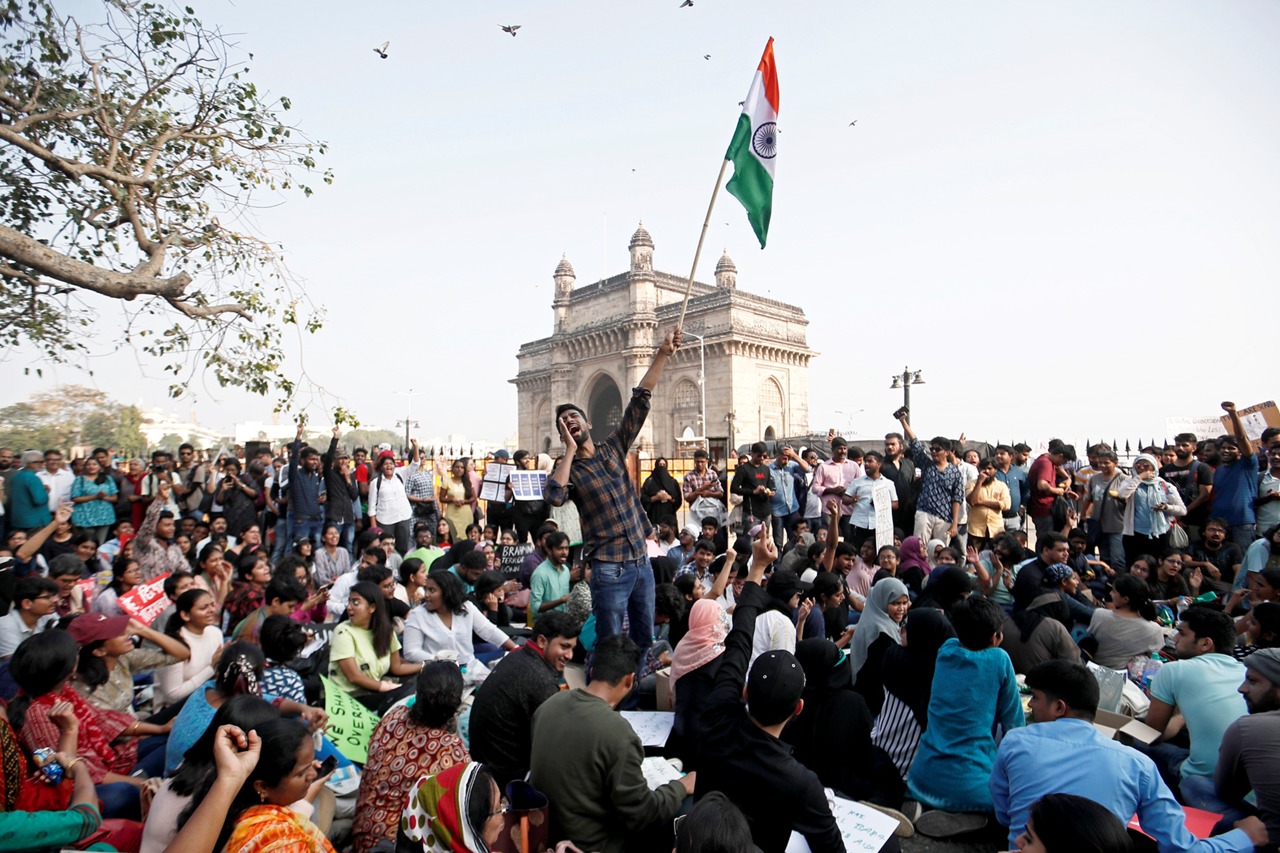
Fears over the Citizenship (Amendment) Act are unfounded
The Controversial Citizenship Law and its Raison D’etre
Primarily, the raison d’etre for the contentious Citizenship Amendment Act 2019 has two central grounds—alleged religious persecution in three Muslims dominated countries and rectifying the partition misdeeds. Looking at the reasons, it appears quite convincing, although factually both the reasons are misconceived and historically defective. The ruling dispensation buoyed on an emotional plank of "ensuring justice to the victims of religious persecution" as these non-Muslims have no other place to go except India. Still, again this argument gained little support and did not provide any remedy against injustice. Even a cursory look at CAA exposes the lacunae in the government's case that the legislation seeks to remedy the errors of Partition. Those errors were quite adequately taken care of when the Constitution brought about Article 6, recognising and restoring the rights of persons who migrated to India from Pakistan in those troubled times [5].
The CAA has peculiar contradictions and can't stand under intense legal scrutiny. For example, CAA classification is not reasonable as mandated to qualify Article 14, 21 and 25 of the Constitution of India. The government has no answer as to why religious minorities in Muslim sects such as Shias, Baloch and Ahmediya, whose members had been facing utmost religious persecution in Pakistan, Bangladesh and Afghanistan had been excluded. Further, the government has no answer as to why persecuted groups from other neighbouring countries like Rohingyas from Mynamar, Madhesis from Nepal, Tamil Elam from Sri Lanka and Muslims from China were conspicuously ignored from the idea of "secularity, progressiveness and inclusivity" from the current Citizenship Amendment Act 2019. This makes the intent to deny protection to Muslims patently clear, even though it is a universally acknowledged fact that Muslims are no more safe from religious persecution than other communities. Instances of such persecution are many, as in the case of the Ahmadi and Shia sects in Pakistan, Taslima Nasrin in Bangladesh, and indeed Salman Rushdie in practically every Islamic country. The CAA fails to recognise the powerful truth that religious persecution is not necessarily premised on the religion of the victim [6].
One must also worry about the future legal effects of the amendment. Under the earlier citizenship regime, "an illegal migrant" was denied access to citizenship even through the process of naturalisation under Section 6 read with Third Schedule of the Citizenship, 1954. An illegal migrant was defined under Section 2(b) as one who was without the necessary passport or travel documents as specified therein. Hence, whether or not a person was an illegal migrant was simply an outcome of the existence of requisite travel documents or the lack thereof. Shockingly, the CAA has reduced the traditional definition by introducing the parameter of religion. Parliament has effectively decreed that a Muslim will remain an illegal migrant, whereas any non-Muslim will not, irrespective of lack of travel documents [7].
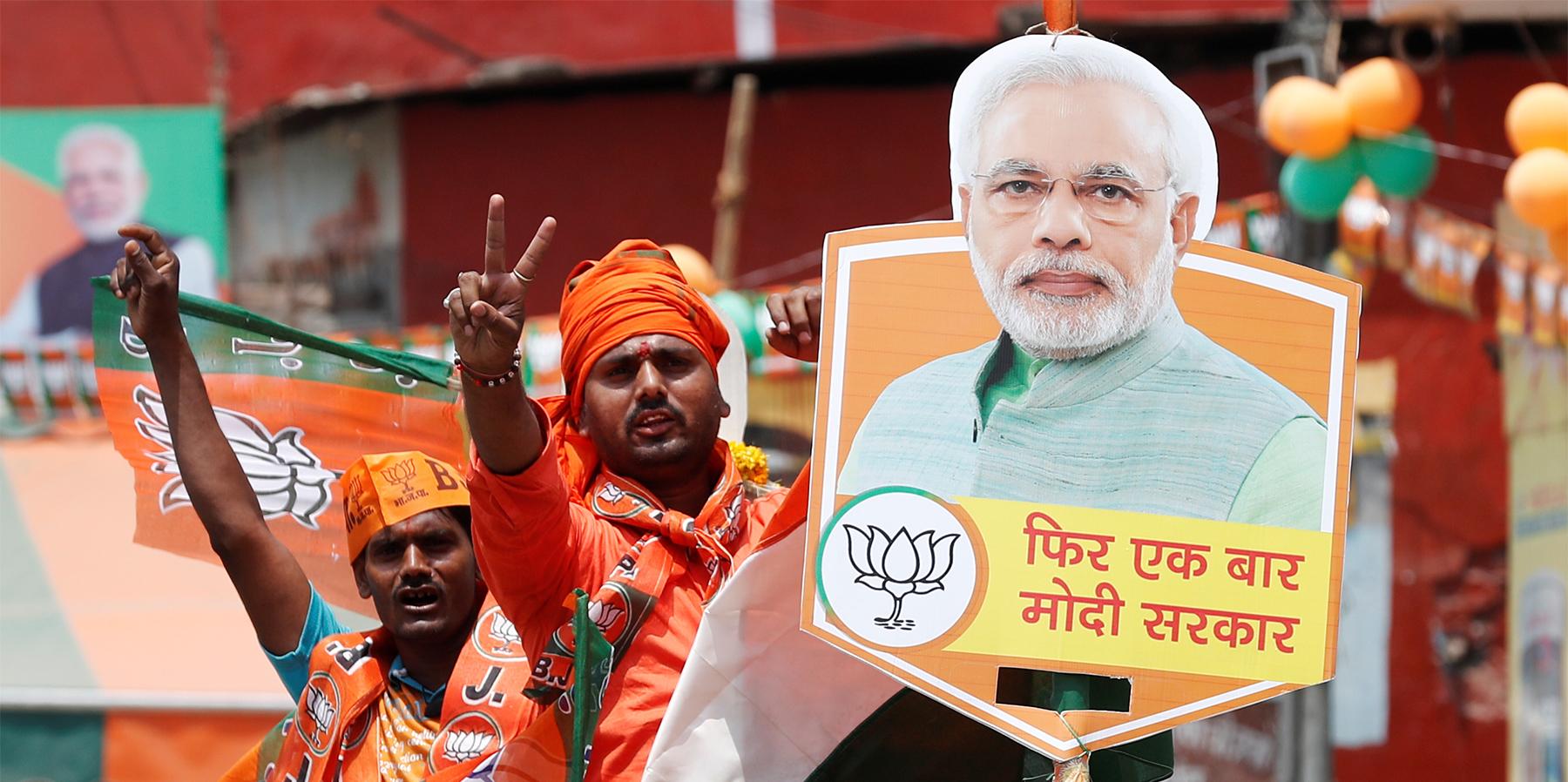
Indian Elections 2019: Towards New Economic and Political Goals
The list of non-Muslim communities excluded from the definition of illegal migrants does not even require that they be of Indian origin. This again makes a mockery of the “persons of Indian origin protection" set out in the objects of the CAA. All they have to be is "from Afghanistan, Bangladesh or Pakistan". What does signify from the word "from"? A citizen? A resident? A passenger in transit? An undocumented traveller? A spy or an alien? Given no requirement of being of Indian origin or having to prove any such origins means that an alien could simply apply on the terms of the CAA, confirm entry on/before December 2014, and be eligible for citizenship.
On the other hand, a Muslim of possibly Indian origin would be denied such a benefit. This may lead to many an undesirable element slipping through the cracks, causing even national security to be sacrificed at the altar of religious jingoism. The primary national security concern arising out of CAA is that Pakistan's ISI may exploit the legal framework provided under the CAA to push their "own people" into India. This significant national security threat arising out of CAA can't be ignored as RAW has already placed its concern before the Joint Committee of Parliament which scrutinised the lapsed Citizenship Amendment Bill 2016. The concern of India's premier intelligence agency are entirely legitimate and valid; there is a great probability that India's neighbouring countries may push their spies in the name of “persecuted minorities” to India aiming to wider the intelligence tent of ISI network in Indian sub-continent.
If the government does not seek to execute a political programme and wants merely to protect the rights of those who are victims of religious persecution, then why doesn't India have an effective policy/legislation for victims of religious persecution seeking asylum? Such a policy/legislation would suffice to serve the purpose, as is the case in most countries. The customary law of citizenship through naturalisation could then take over in due course. What then is the legal imperative, much less the rationale, to elevate a refugee to a citizen merely because he is a non-Muslim while denying the same right to a Muslim? The idea of citizenship is contained in Part II of the Constitution under Articles 5 to 11. The fact that these Articles were drafted, debated, redrafted and re-debated over a period of two years, culminating in their final form only on August 12, 1949, shows what a vexed question it was then too. Unfortunately, the incumbent Union government has, through its brute majority in Parliament, managed to sneak into the constitutional charter what the founding fathers rejected more than 70 years ago. The introduction of religion-specific parameters for granting of citizenship was attempted by some members of the Constituent Assembly and entirely rejected by the majority.
The genesis of the anti CAA protests
At the domestic level, the spiralling protests against the CAA coupled with proposed NRC in throughout the nation simply refuse to bow down due to various reasons. Anti-CAA protests that began with students' protests have now truly acquired a mass dimension with cross-class participation, massive mobilisations and most remarkably, a certain degree of spontaneity. The CAA is not significant for its discriminatory clause, although it announces a visualisation of India blatantly different from the core philosophy of the Constitution of India. Furthermore, the anguish of protestors not confined to why Muslims have been singled out but ill-effects of the draconian legislation would also make an adverse impact on social, economic and cultural rights of Dalits and Tribals communities. Notably, the protestors are not solely from minorities, but Dalits and Tribals communities are too thronged to the streets against this discriminatory legislation because it attacks the very idea of India, which we cherished since time immemorial. The Indian history is the history of caste, religion and gender-based atrocities and discrimination and the Constitution of India drafted by Dr B R Ambedkar based on sole philosophy, i.e. equality and liberty to all. This contentious legislation forbids the primary and most sacred principle of the Constitution of India [8].
Shockingly, the BJP led government is not keen to admit the fact that religious animosity and murderous riots of the past several centuries have demonstrated the dangers of extreme nationalism and there is no place of such ultra-nationalism in a highly diversified country like India. India's major minority community, i.e. Muslims have frequently suffered in countless communal and ethnic conflicts alongside Dalits and Tribals communities [9]. It is perhaps undeniable that we can, ultimately, live a life of civility only when we live in a secular and tolerant society. To reiterate what has been suggested above, history tells us how to lead a good social life, and political theory tells us that such a life can only be led in a good society and within a state that reins in and inhibits the ugliness of religious hatred, communalism and vulgar human ambitions and fosters solidarity. The Indian state under the present dispensation must understand that to inhabit a state that ensures dignity and respect to each and every person to pursue our ambitious plan and projects. For these, and other reasons, we need to reiterate our commitment to building a good society, unless we wish to be dismissed by history as just another social order that does not value minorities rights, social harmony, equality and liberty. In any case, in modern India, we simply do not have the luxury of living apart. Indians have to relearn how to live together in civility, and such laws jeopardise the very idea of India [10]. This is not only fundamental to civic harmony but also essential to international peace, security and prosperity. The Indian Constitution draws its inspiration from the Magna Carta, Bill of Rights, Nehru Committee Report 1928, UDHR 1948 and other international covenant that makes it best Constitution of the world. Indian Constitution acknowledges the imperatives of modern egalitarian and enlightened society and the society must be free from all sort of biases, discrimination, deprivation [11]. Since Indian history is a history of struggle against all sort of apartheid, racism and ethnic violence and many provisions have been incorporated in the Constitution to provide constitutional protection to certain vulnerable, deprived and minorities groups of establishing a society free from all sort of discrimination [12]. The latest Citizenship Amendment Act 2019 basically contradicts India's established position. The international media routinely publishing the police highhandedness against the protestors, excessive use of force against the students and muzzling the dissenting voices of intellectuals, artists, students and oppositions parties. All these developments are frequently coming in international media that highlighted the ruthless face of the Indian state and questioned India's claim of being secular and a heterogeneous society in the international community [13].
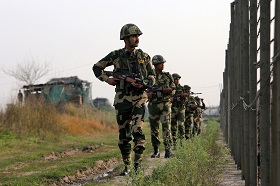
Moving Beyond Gujral Doctrine
Melting India’s global image — The ill effect of CAA
The core issue of present discussion here is that are we waning our great position from the global stage due to this contentious legislation? This answer is in a positive note. Why? Because since the enactment of the controversial Citizenship Amendment Act 2019 by the Indian Parliament, we have been losing our trusted allies from global politics. Senior diplomat and former national security advisor, Shiv Shankar Menon, has termed the present crisis in following words, "The CAA and the revocation of Article 370 from Jammu and Kashmir, these two incidents had led to India being isolated from the international community, even our traditional allies questioning our action." India's international humiliation continues since the revocation of Article 370 from the state of Jammu and Kashmir in August 2019 and the unanticipated reaction received from the international community especially from United Nations, United States, European Union and China. In September 2019, at UN General Assembly annual meet Malaysia and Turkey come down heavily against India over the issue of revocation of special status from Jammu and Kashmir, prolonged locked-down and violation of human rights. President Recep Erdogan of Turkey raised human rights issue of people of Kashmir and asked for the solution of the problem through justice and equality instead of conflicts, denial of fundamental rights and state-sponsored violence, while addressing the UN General Assembly on September 24, 2019. After the flak from Turkey, Malaysian PM Mahathir Mohammed acknowledged that his remarks at the annual United Nations conference in New York made an adverse impact on bilateral ties between India and Malaysia. He described the current tense situation between the two nations a kind of economic war. The economic rift with Malaysia at such juncture when the Indian economy was already dwindling show sheer diplomatic fiasco [14].
India's great global prestige further melted down when the Indian parliament passed the contentious Citizenship Law from parliament. Since the Lok Sabha endorsed the Bill, United States has staunchly opposed this discriminatory, divisionary and anti-Muslim Act. The American federal panel on international religious freedom has termed the controversial citizenship law as fundamentally anti-Muslims and its dangerous turn in the wrong direction as it a directly against India's rich tradition of multiculturalism and secularism. Recently, Japanese Prime Minister Shinzo Abe's cancelled his visit to India which was scheduled to be held in Guwahati. After Japan, Bangladesh Foreign Minister AK Abdul Momen and the country's Home Minister called off their visits to India amid agitations in the northeast. Bangladesh Home Minister Asaduzzaman Khan, who cancelled his visit, was scheduled to visit Meghalaya for an event. After the US, now the United Nations has condemned this draconian Citizenship Amendment Act 2019 and asked for its review immediately. The United Nations Human Rights (UNHR) office has termed India's Citizenship Amendment Act 2019 as "fundamentally discriminatory in nature" for leaving out Muslims and called for an immediate review. "We are concerned that India's new Citizenship (Amendment) Act 2019 is fundamentally discriminatory in nature," UNHR spokesperson Jeremy Laurence said in Geneva. The Office of the UNHCR hopes that new law will be reviewed by the Supreme Court of India and hope it will consider the compatibility of the law carefully with India's international human rights obligations.
Intellectuals and writers across the globe have compared the CAA, with all its discriminatory provisions, to the dishonourable Nuremberg Laws of Nazi Germany. In September 1935, Germany introduced two draconian laws commonly known as the А. Кортунова, а также Nuremberg Laws: the Reich Citizenship Law and the Law for the Protection of German Blood and German Honor. These laws embodied many of the racial theories underpinning Nazi ideology. These laws basically would provide the legal and judicial justification for the well-designed and well-planned persecution of Jews community in Germany who were the most significant religious minority community during the Nazi era under the headship of Hitler. The Indian citizenship legislation, i.e. CAA closely associated with the infamous Nuremberg Laws but mainly differ in details but not in spirit, if we examine meticulously [15].
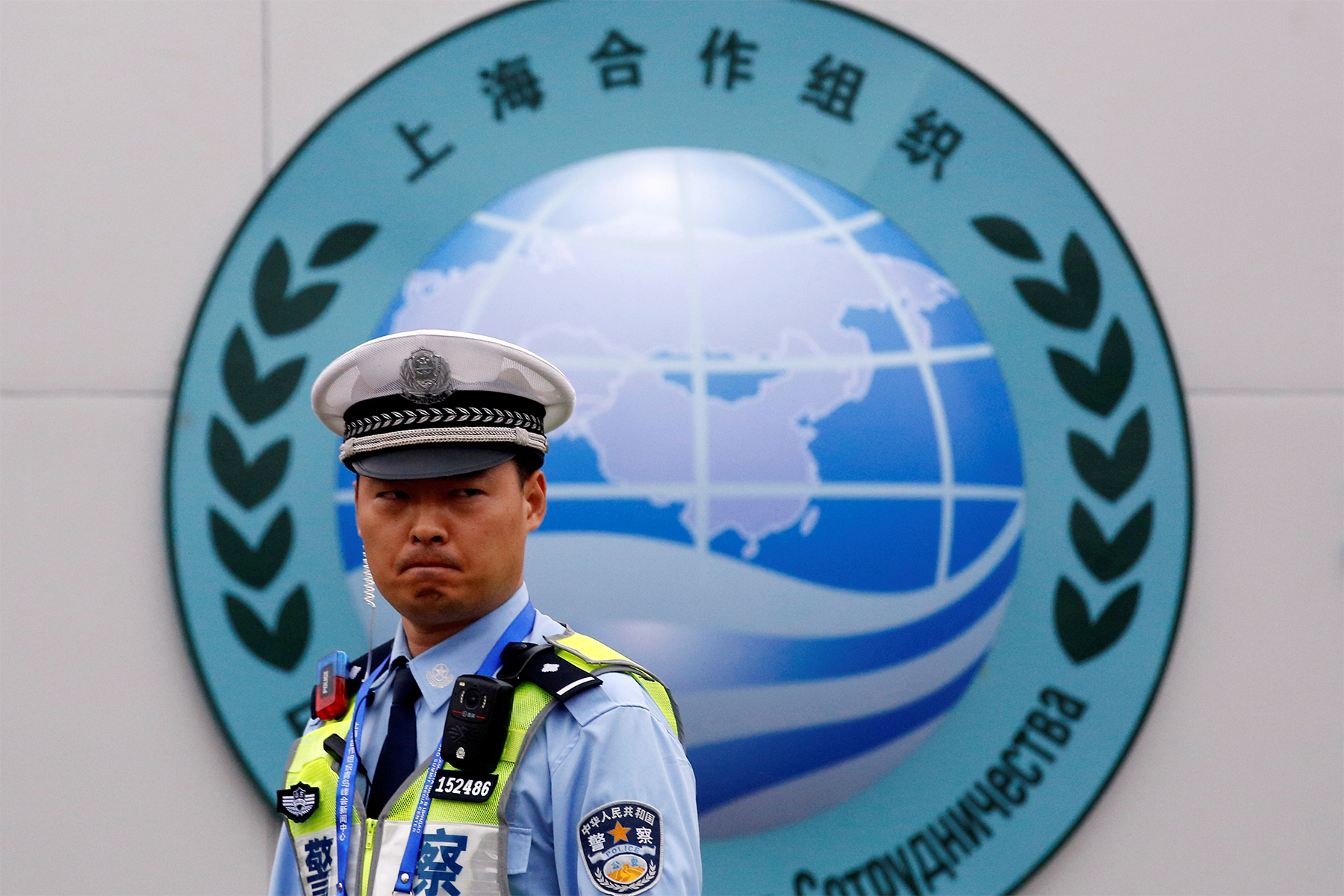
BRICS, SCO and Kashmir Terrorism
Losing allies in global politics
If we believe in certain media reports that appeared in the leading newspaper of the world, the Indian government has inflicted a self-goal in the diplomatic context and gradually losing trusted allies and global partners in the international community. India must recognise this mistake urgently and needs to correct domestic political challenges. Recently, the two US panels—Commission on International Religious Freedom and the House Foreign Affairs Committee—have criticised CAA for undermining the basic tenets of democracy. This is bad for India's foreign policy objectives and image abroad. There has been no meaningful global support for this series of actions by the Indian government, apart from a few committed members of the Indian diaspora and a ragtag bunch of some EU MPs from the far-right ideology. In the SAARC region, we have already experienced the strained relation with Bangladesh, Nepal and Sri Lanka. Hostility and vulnerability in Indo-Pak relation are at an all-time low due to various reasons, including the revocation of Article 370 from Jammu and Kashmir, and now the citizenship law. Many world leaders have spoken about India's series of decisions that put the country in a different category. The key leaders who were pretty critical about India's foreign policy and adoption of certain decisions are French President Emmanuel Macron, German Chancellor Angela Merkel, the United Nations High Commissioner for Refugees and even King Harald V of Norway.
One of the things for which the Modi government rightly deserves credit is strengthening India's foreign policy heft and outreach. Over the last six years, India has been recognised as a rising power and has cemented its place on relevant international platforms. In fact, the US and other Western powers have come to see India as an important democratic partner in hedging against China's aggressive power projection in Asia and especially. This is especially relevant in the fields of trade and developing proximity with Nepal, Sri Lanka and the Maldives and Indian ocean, the most crucial factor of constraint for China's rise was India. Nonetheless, all of that raises the risk of New Delhi revoking Article 370 from Jammu and Kashmir, impending nationwide NRC or overly strict restrictions in the North East region and orchestrating a brutal crackdown against student protestors in key universities [16]. Due to all these nasty developments, it will be a real tragedy if foreign governments, as well as foreign investors, think twice before pegging India as a stable and functional democracy and instead re-hyphenate it with Pakistan. Against this backdrop, the government needs to ask itself if pushing the CAA is worth it. Internally, if the Modi government wants to bring about a strong and united India, the CAA is defeating its very purpose. It should be rolled back. There is no harm in admitting a mistake. Or if that proves too difficult, perhaps a ten-year moratorium can be declared, while more consensus is generated around it.
Economic setback after CAA
After the enactment of contentious citizenship legislation, many observations can be drawn from this set of understandings. The most basic is the division between those who see the international community have reacted sharply on denial of justice and minorities rights. Alongside, some thinkers looking at the developments as a major setback for India on the economic front. Trade war with Malaysia and suspension of defence exports to Turkey have deeply upset India's economic interest. Some major political decisions of the present dispensation have jeopardised India's interest profoundly, and the economy is under the extreme threat. India has been facing a "Great Slowdown" with its economy headed for intensive care unit due to some directionless decisions, i.e. demonetisation, abruptly introducing the GST and after the revocation of Article 370 form state of Jammu and Kashmir, the country has been facing economic turbulence from many fronts [17]. Senior economist of international repute and former IMF India office chief Josh Felman has said that India is facing multi-corner challenges-comprising banks, infrastructure, plus NBFCs and real estate companies—and is trapped in an adverse interest growth dynamic. Certainly, this is not an ordinary slowdown. To attract foreign investment, the stability of nation, peace and harmony is a prerequisite condition. The good governance needs credibility, transparency and accountability, and these attributes are becoming hard to find in the current ruling dispensation. The international media regularly reporting about prolonged locked down in many parts of the country in the aftermath of CAA, internet accesses has been denied to citizens, many reports of deep antipathy against minorities, growing curfew culture are not a healthy sign of making any sincere efforts to revive the economy.
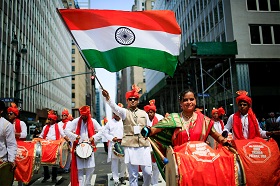
Modi: Focusing on the Indian Diaspora Abroad
Concluding Remarks
Unfazed by the UN criticism and countless unsavoury world press coverage about ongoing unrest due to CAA and impending NRC, India has demonstrated a local approach towards international pressure. Turning down the UN observation alongside concerns of US, EU, Middle East and many countries, the CAA may well have been the most consequential foreign policy decision of Modi government. Its repercussions will be felt for months, and even years to come—but what exactly they will be depends on what the Modi government does next when the majority of the international community agrees to isolate India from the diplomatic and global stage. Under the current scenario, considering India’s rigid approach about the contentious legislation and the issue of minority’s rights, it can be safely stated that impending diplomatic isolation is visible for India. Perhaps the lessons of our past have delineated the necessity of respect for the rights of persons belonging to ethnic and religious minorities. Four principles must not be missed in national politics that too determine that foreign relations and global image of a nation are; pluralism, tolerance, co-existence and secularism, which are all fundamental to international peace, security and prosperity. The international liberal media has taken the large-scale anti-CAA protests across India seriously and regularly publishing the discontentment across communities. The growing communal divide coupled with hostile relations with neighbouring countries are enough to renew the faultlines and possibilities of confrontation with Pakistan and China in the coming days. South Asia can't afford any military or armed conflict and to avoid any regional conflict, the major responsibility lies on India. Some of the steps taken by India in the recent past have the potential to destabilise the peace of South Asia. India must drop the idea of CAA and NRC that has been enacted with an ill-will against India's most significant minority, i.e. Muslims. History has witnessed that whoever ignored minorities rights, human rights and rights to equality and liberty of its citizens had paid a hefty price in the past.
1. Citizenship Amendment Bill 2019 was introduced by BJP led Modi Government in 17th Lok Sabha by the Sh Amit Shah, Union Home Minister 09.12.2019 and was passed on 10.12.2019, with the majority of MP endorsed the CAB against the 80 MPs. The Bill was passed by the Rajya Sabha on 11.12.2019 with 125 votes in favour and 105 votes against it
2. Rana Ayyub, India's protests could be the tipping point of authoritarianism, The Washington Post, Dt 18.12.2019
3. UN Press Release Dt 13.12.2019, also see, Explained- The Indian Express, New Delhi Dt 17.12.2019
4. Angana P. Chatterjee, Thomas Hansen and Christophe Jeffrelot, The Majoritarian State-How Hindu Nationalism Changing India, Harper-Collins, 2019
5. M P Jain, The Constitutional Law of India, LexisNexis Pub. New Delhi 2018
6. Faizan Mustafa, Religious bases of citizenship would be a negation of secularism, Indian Express Dt 11.12.2019
7. Atul Nanda, Bad in law, poor in history, Indian Express, New Delhi Dt 27.12.2019
8. Dr Ambedkar and Democracy-An Anthology, Christophe Jaffrelot, Narender Kumar, Eds. OUP New Delhi, 2008
9. Zoya Hasan, Politics of Inclusion-Castes, Minorities and Affirmative Action, OUP, New Delhi, 2009
10. Neera Chandhoke, Rethinking Pluralism, Secularism and Tolerance, Sage Pub. New Delhi, 2019
11. M P Jain, Constitutional Law of India, Lexis Nexis Pub, New Delhi
12. Dr B R Ambedkar, State and Minorities -What are their rights and how to secure them in the Constitution of free India, Siddharth Books, New Delhi, 2008
13. We are witnessing a rediscovery of India’s republic, The New York Times, Dt 27.12.2019
14. Malaysia PM stands by criticism of India on Kashmir issue, The Hindustan Times, New Delhi Ed. Dt 24.10.2019
15. Tanwer Fazal, Good protestors and bad protestors-the uneven police response to anti-CAA demonstration, The Caravan, New Delhi Dt 08.01.2020
16. The Economic Times, New Delhi Edn. Dt 16.12.2019
17. Arvind Subramanian, The Mint, New Delhi, Dt. 18.12.2019
(votes: 13, rating: 5) |
(13 votes) |
ISIS is a far newer force than al-Qaeda on the Indian Subcontinent, but already it has had a large number of recruits arrested, of its recruiters deported, and a shocking number of cells busted.
BRICS, SCO and Kashmir TerrorismThe Role of BRICS and the SCO in Coordinating Anti-Terrorist Activities in South Asia
Indian Elections 2019: Towards New Economic and Political GoalsWhither a ‘Strategic Calculus’ under Modi 2.0?
Moving Beyond Gujral DoctrineIndia’s new doctrine
India and the SCO: A Vision for Expanding New Delhi’s EngagementWith the stakes high, looking North is now more imperative than ever before




